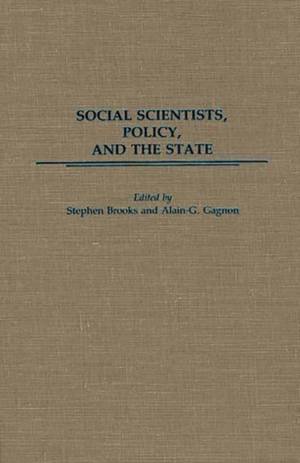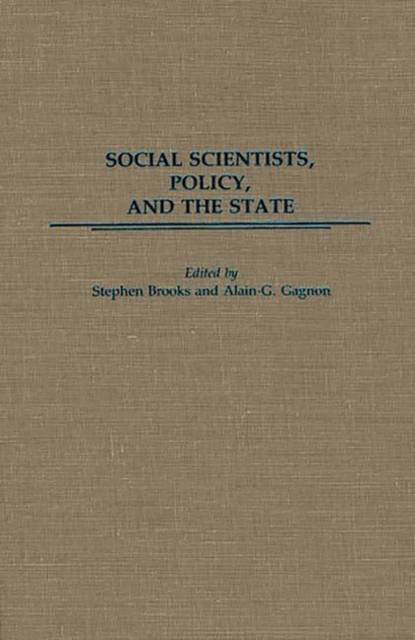
- Retrait gratuit dans votre magasin Club
- 7.000.000 titres dans notre catalogue
- Payer en toute sécurité
- Toujours un magasin près de chez vous
- Retrait gratuit dans votre magasin Club
- 7.000.0000 titres dans notre catalogue
- Payer en toute sécurité
- Toujours un magasin près de chez vous
127,45 €
+ 254 points
Description
This collection of original essays focuses on the relationship of social scientists to the state and public policy in the industrialized democracies. The comparative approach of this book provides the basis for broader generalization about the linkages between social science and social scientist and the modern state and political power. Social Scientists, Policy, and the State brings fresh analysis to specific issues that are important to a more general understanding of these linkages.
Part I examines the ways in which social scientists participate in the policy-making process. Part II looks at the uses made of ideas generated by social scientific research and at variations within and relations between the critical and expert roles of the social scientist. Part III discusses the factors that have contributed to change in the relationship of social scientists to power and to the state. This section also includes a detailed discussion about the cultural and structural conditions that facilitate or block the political influence of social scientists. This book should have equal appeal to teachers and researchers in the fields of comparative politics, policy making, and the sociology of knowledge.Spécifications
Parties prenantes
- Auteur(s) :
- Editeur:
Contenu
- Nombre de pages :
- 193
- Langue:
- Anglais
Caractéristiques
- EAN:
- 9780275934491
- Date de parution :
- 09-03-90
- Format:
- Livre relié
- Format numérique:
- Genaaid
- Dimensions :
- 156 mm x 248 mm
- Poids :
- 489 g

Les avis
Nous publions uniquement les avis qui respectent les conditions requises. Consultez nos conditions pour les avis.






